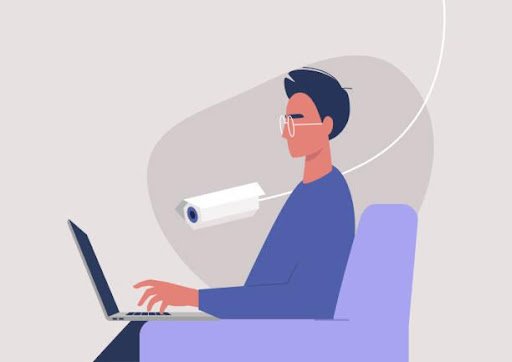The internet is such a big part of our lives that it is difficult to imagine life without it. The internet is used for everything these days, from shopping to getting in touch with friends to researching health issues.
Our intention is not to scare you, but YOU ARE BEING WATCHED!
Governments and companies keep tabs on your online activity through your browsing history. Without realizing it, all of us are leaving a lot of information out in the void, spied on by plenty, including your Internet Service Provider; yes, you heard it right!
This article will explain how your internet provider can see your browsing history and how to protect yourself. Keep reading.
a
What Does My Internet Provider (ISP) See?
Your ISP or Internet Service Provider is your gateway to the internet. They automatically receive plenty of information about your online life and you.
As long as your online activity is not encrypted, your ISP will see it!
Many users believe that incognito mode can keep you protected from spying, which is merely a myth. Even in incognito mode, your ISP knows the websites you visit, who you message, and everything you do on your social media.
Often, they know more than you think, like your finances or even personal health. How? For instance, if you’re facing a severe headache and you search about it on Google to check if it’s something severe, that’s where you made a mistake because your ISP can easily spy on your browsing history. Using your data, they can even create an accurate profile of you and tie it to your IP address.
Creepy, right?
Hide your IP address and use an encrypted channel if possible. Most countries have strict laws on data retention, while others don’t. These laws decide how the ISPs should save the data they collect. The duration is six months in some countries, while at least a year in other countries. Within this period, the police and governments could call ISPs to acquire all the data stored by ISPs and what happens next is always unclear.
It might differ per counter or provider, but it is forbidden for ISPs to sell your data to third parties.
How to Protect Your Online Presence from ISPs?
Internet Service Providers (ISPs) may monitor anything you do on the internet. They can monitor the material you watch, the websites you visit, how long you stay on them, and your geographic location. This information is used for several objectives depending on where you are, including building a consumer profile for sale to third-party marketers or imposing internet restrictions on behalf of governments.
The only way to protect your online presence from your Internet Service Provider (ISP) is by hiding your IP address or using an encrypted channel.
But how to do that?
- VPN
An essential step to protect yourself from online dangers is to download VPN. A VPN will encrypt all internet traffic running to and from your device and tunnel it through an intermediary server. This means that it’s unreadable to your ISP or anyone else snooping on your activity, such as network administrators, government agencies, or hackers.
Not only that, but a VPN also masks your IP address and replaces it with your desired location. You can bypass geo-restrictions on websites offering games, streaming services, gambling, and traveling abroad.
- Proxy Servers
Using proxy servers, you can hide your IP address from revealing the websites you visit. However, it is not the most convenient method to do that as it may not encrypt your data, and therefore, your data will still be at risk.
A proxy helps bypass geographic restrictions but it can’t protect the exchange of sensitive information. In simpler words, a proxy offers minimal protection and anonymity to users.
- Tor Browser
The Tor Browser allows you to transmit all your online traffic through a worldwide network of servers. Tor browser adds layers of data encryption. This browser provides users with an anonymous and safe internet browsing experience. However, everything comes with some drawbacks. The only drawback that Tor has is its slower connection.
Note: While the Tor Browser is an excellent way to improve your privacy, various people abuse its use to obtain users’ data.
So, we always advise using a VPN service before accessing it for an additional layer of protection and encryption.
Final Thoughts
Many people want to get their hands on your personal information. This data can customize advertisements, improve services, or spy on you and steal from you.
As a result, it’s critical to protect your privacy. This can be accomplished by utilizing a proxy, the Tor browser, or a VPN. Although a proxy does not encrypt your online activity, Tor and a VPN, when used together, provide enough security.
Using both will protect you much more: you can easily buy a VPN and utilize the Tor browser simultaneously. Other parties will have a difficult time obtaining your personal information this way.


